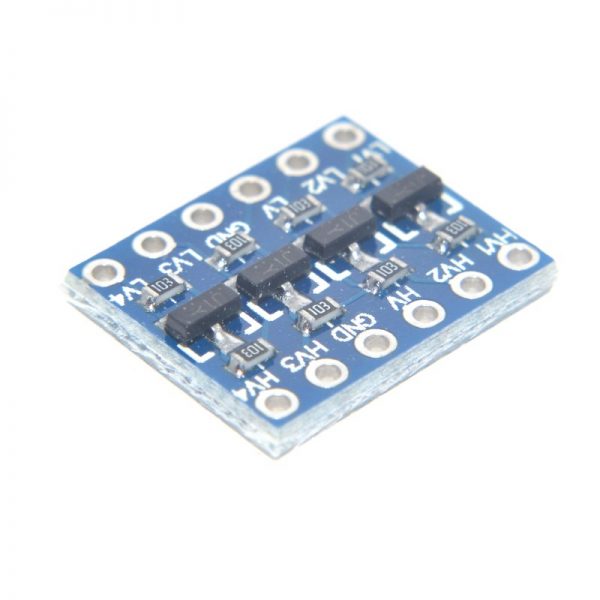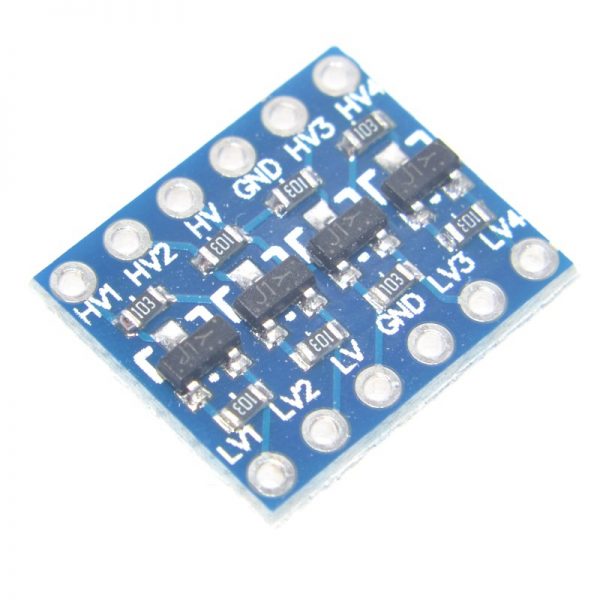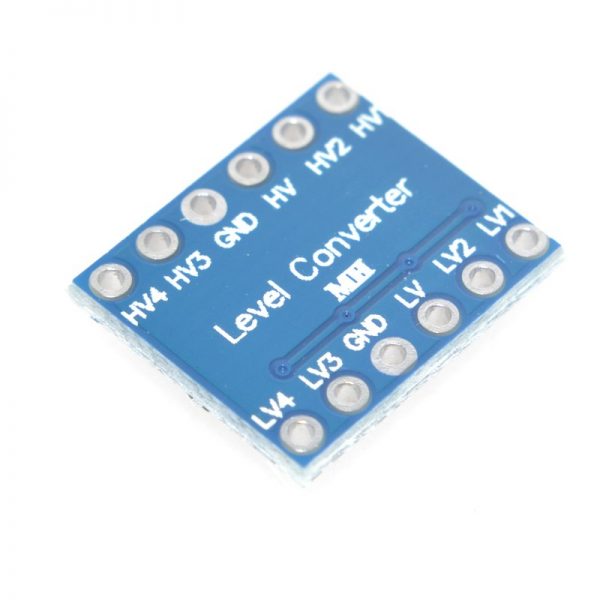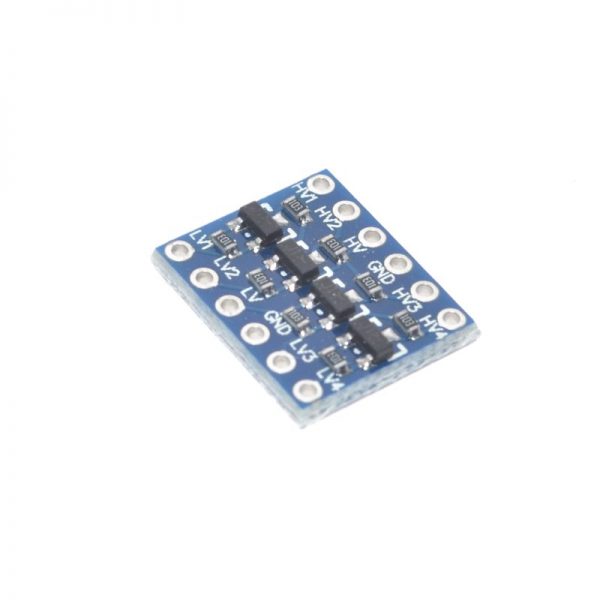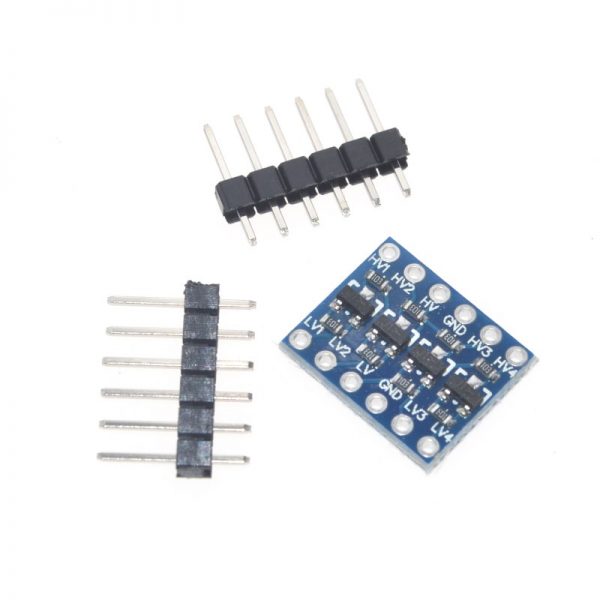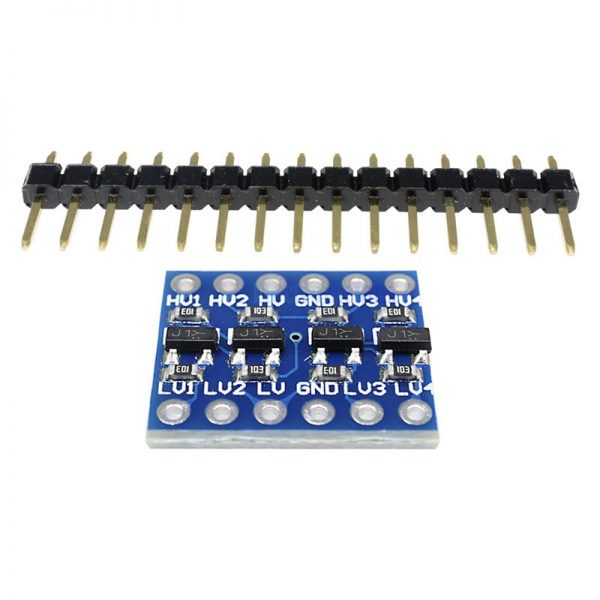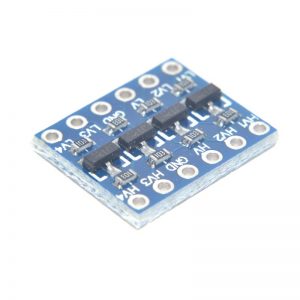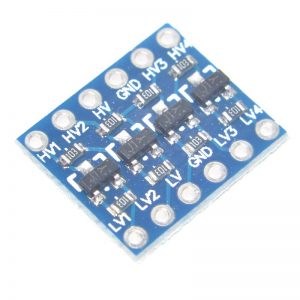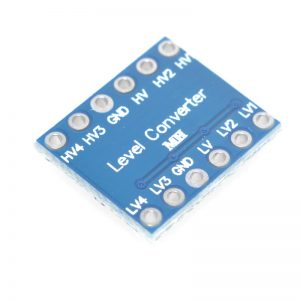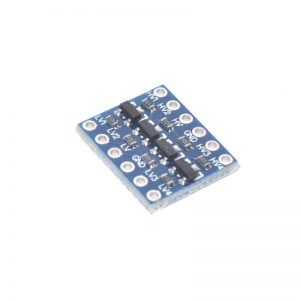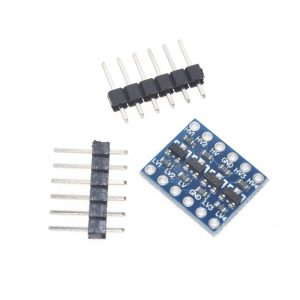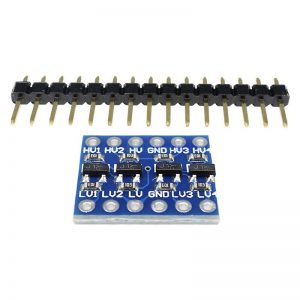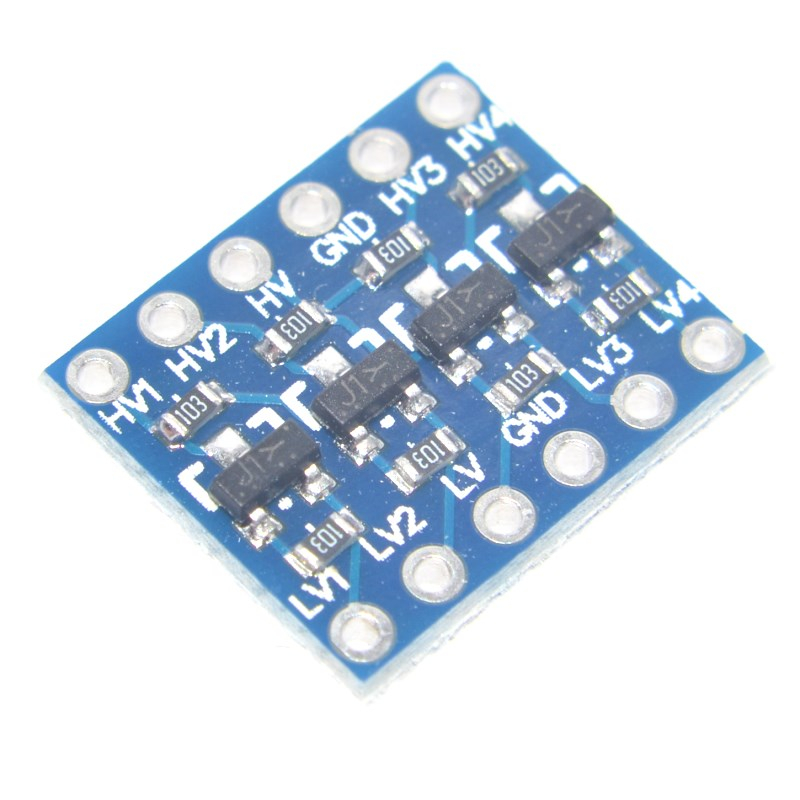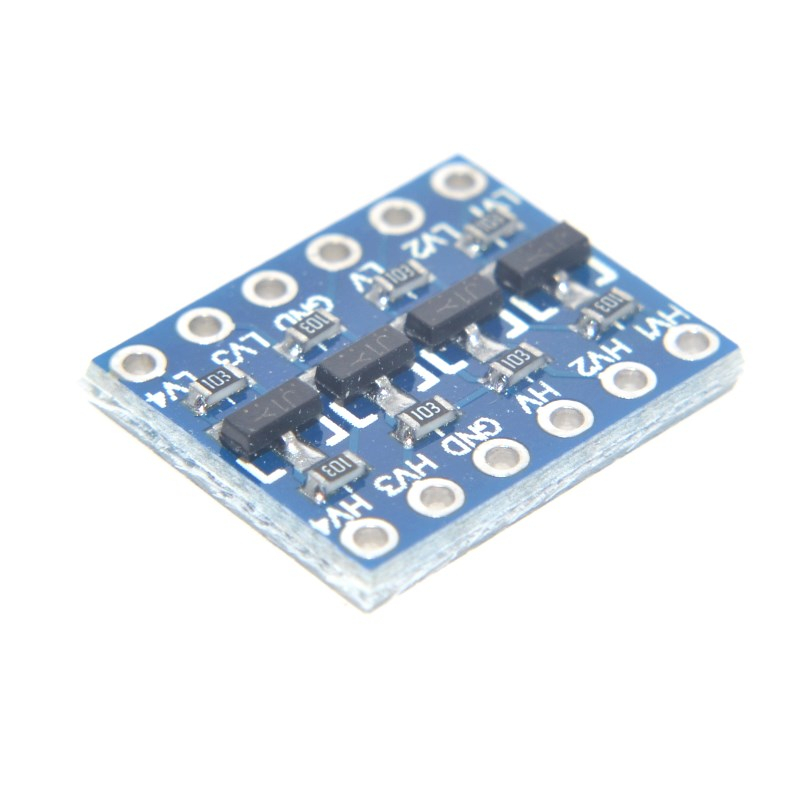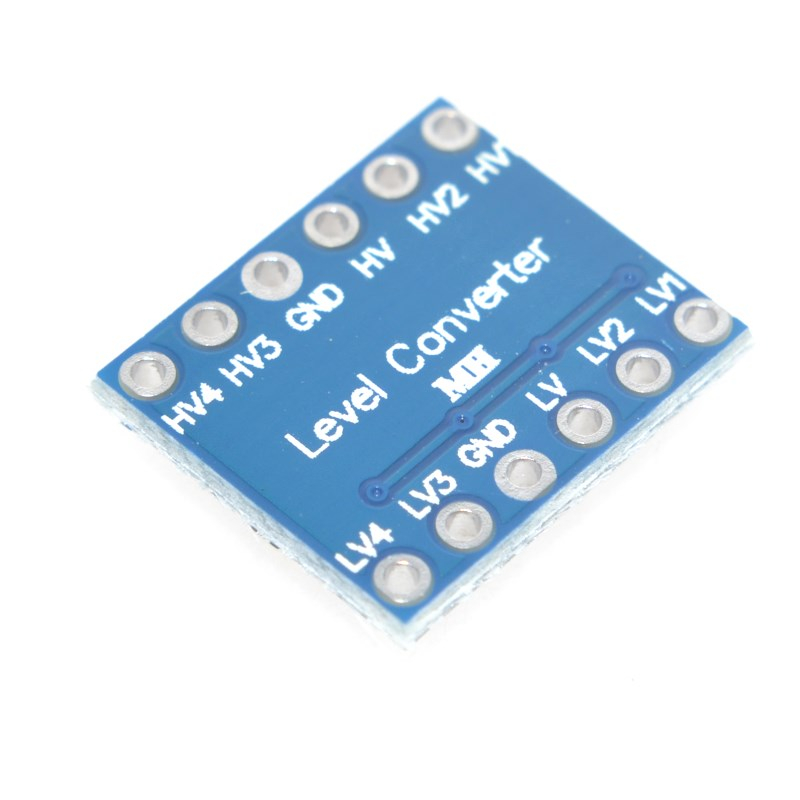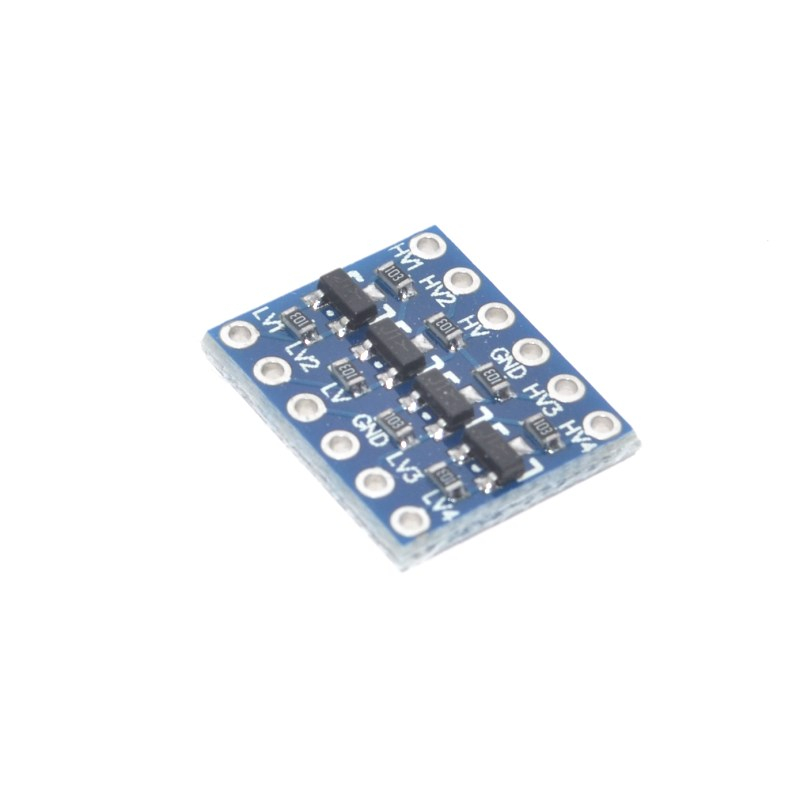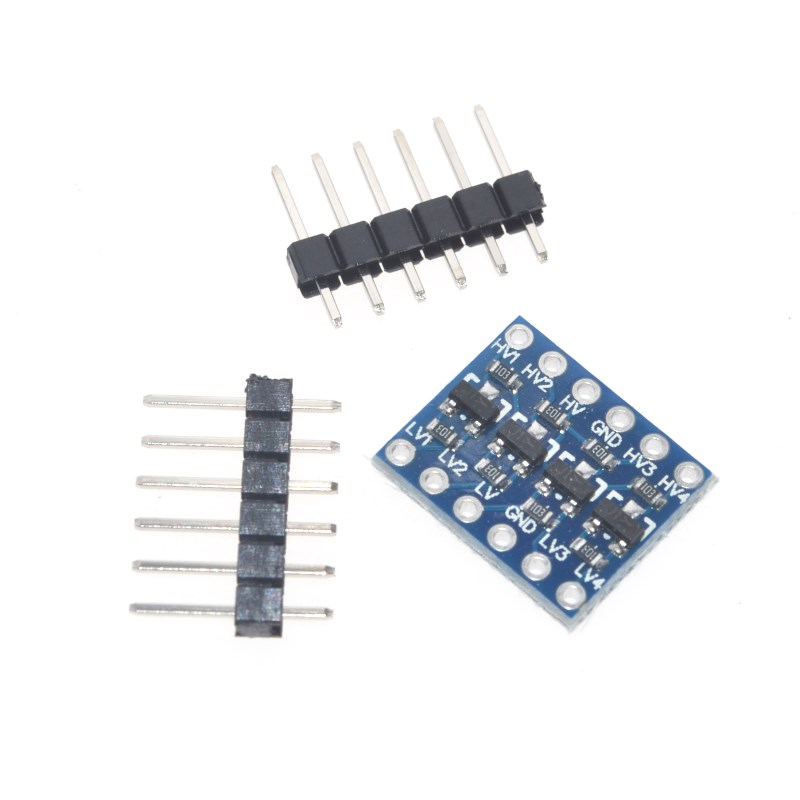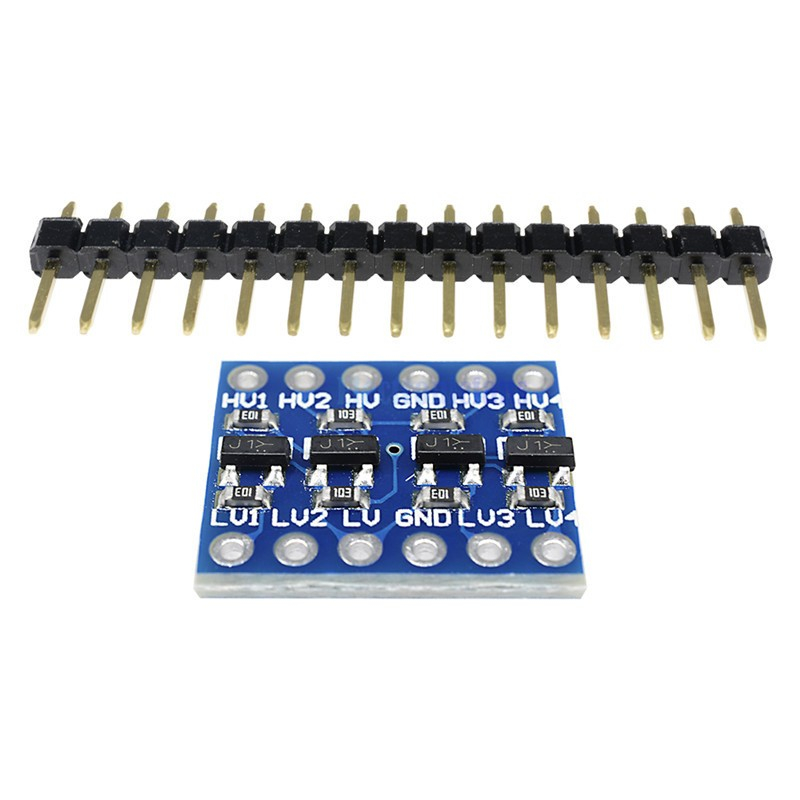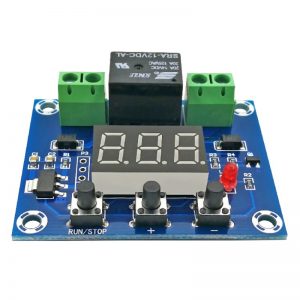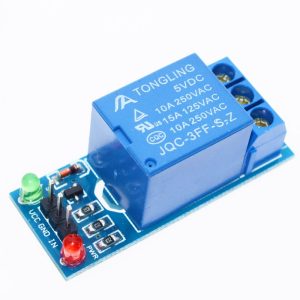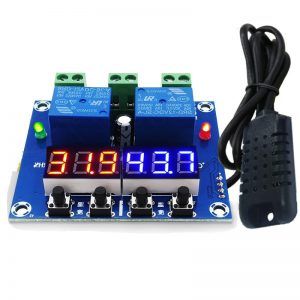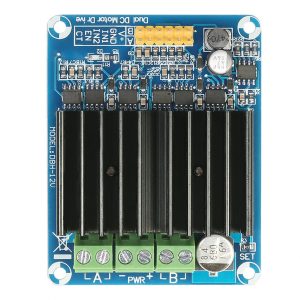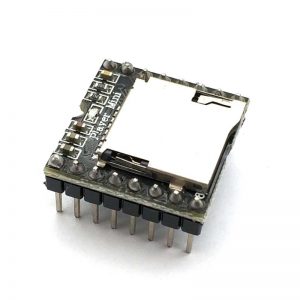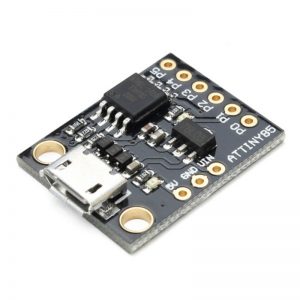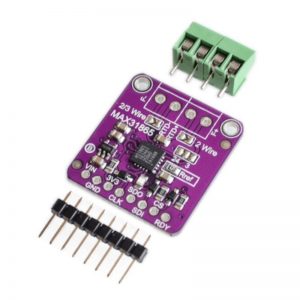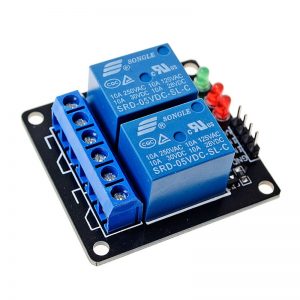It can be a challenge to connect a 3.3V device to a 5V system. This bi-directional logic level converter solves that problem. It is a small 4-channel device that safely steps down 5V signals to 3.3V AND steps 3.3V up to 5V at the same time. This level converter also works with 2.8V and 1.8V devices.
What separates this logic level converter from other versions is that you can set your high and low voltages and step up and down between them safely on the same channel. Each level converter has the capability of converting 4 pins on the high side to 4 pins on the low side with two inputs and two outputs provided for each side.
Operation
The level converter is very easy to use. The board is powered from the two voltages sources (high voltage and low voltage) that your system is using. High voltage (5V for example) to the ‘HV’ pin, low voltage (3.3V for example) to ‘LV’, and ground from the system to the ‘GND’ pins. Minimum low voltage LV is 1.8V, maximum high voltage HV is 6V.
There are four separate data channels on the converter board, each capable of shifting data to and from high and low voltages. These pins are labeled HV1, LV1, HV2, LV2, HV3, LV3, and HV4 and LV4. The number at the end of each label designates the channel of the pin, and the HV or LV prefix determines whether it’s on the high or low side of the channel.
A low-voltage signal sent in to LV1, for example, will be shifted up to the higher voltage and sent out HV1. A signal sent in HV3 will be shifted down and sent out of LV3. Use as many of these channels as your project requires. You don’t have to use every single one.
These level shifters are purely digital. They can’t map an analog voltage from one max voltage to another.
